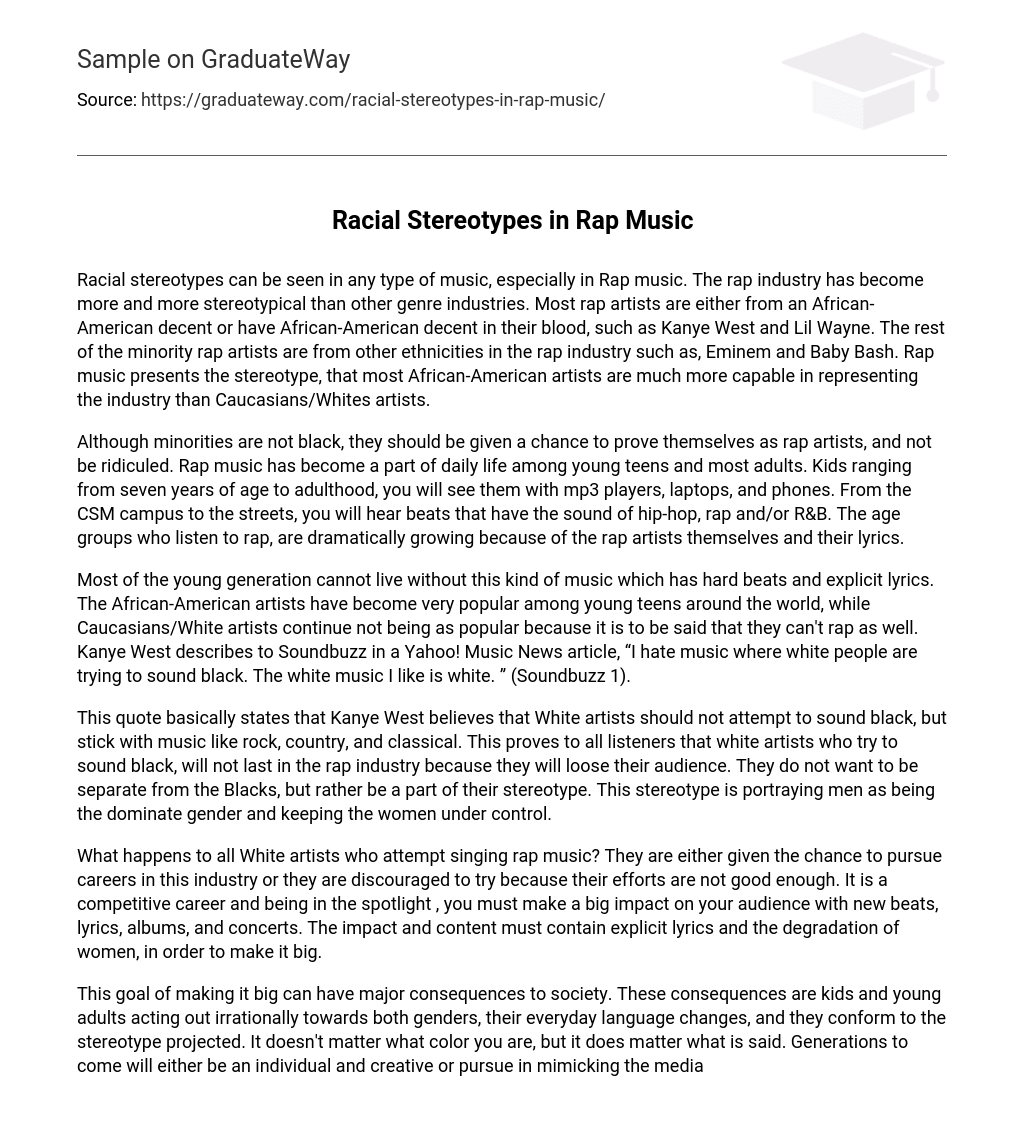Racial stereotypes are evident in all types of music, particularly in Rap music. The Rap industry has become increasingly associated with stereotypes compared to other genres. Many Rap artists are either African-American or have African-American heritage, like Kanye West and Lil Wayne. Additionally, there are minority artists from other ethnicities in the industry, such as Eminem and Baby Bash. Rap music perpetuates the stereotype that African-American artists are more skilled in representing the industry than White artists.
While minorities who are not black should also be given the opportunity to showcase their skills as rap artists without being subjected to mockery. Rap music has seamlessly integrated itself into the daily routines of young teenagers and many adults. Whether it’s children as young as seven or individuals in adulthood, it is common to observe them with devices like mp3 players, laptops, and phones in tow. The beats resonating on the CSM campus and throughout the streets resonate with elements of hip-hop, rap, and R&B. The number of age groups engrossed in rap music has grown immensely due to the influence of rap artists and the content of their lyrics.
The majority of the younger generation has a strong attachment to a genre of music that features intense beats and provocative lyrics. African-American artists have gained immense popularity among young teenagers worldwide, whereas Caucasian/White artists have not been able to achieve the same level of fame because it is commonly believed that they are not as skilled in rapping. In an interview with Soundbuzz published in Yahoo! Music News, Kanye West expressed his distaste for music in which white individuals attempt to imitate black style, stating, “I dislike it when white people try to sound black. The white music that I appreciate is authentically white.” (Soundbuzz 1).
Kanye West’s quote advises White artists against imitating Black sound and encourages them to explore genres such as rock, country, and classical music. It implies that by trying to adopt a Black aesthetic, White artists will find it difficult to maintain their audience in the rap industry. The intention behind this is not to distance themselves from the Black community but rather to conform to certain stereotypes. These stereotypes reinforce ideas of male dominance and the subordination of women.
When white artists try their hand at rapping, they can either be supported and urged to pursue a career in the industry, or discouraged based on the belief that they lack talent. This particular career path is extremely competitive and demands artists to captivate their audience with unique beats, lyrics, albums, and live shows. Often, this entails using explicit language and objectifying women as means to attain success.
The pursuit of fame and success can have significant societal implications. These repercussions include irrational behavior towards both genders among children and young adults, alterations in everyday language, and adhering to projected stereotypes. One’s race may not be significant, but the words spoken are. Future generations will either embody individuality and creativity or imitate the media and music artists they idolize.





